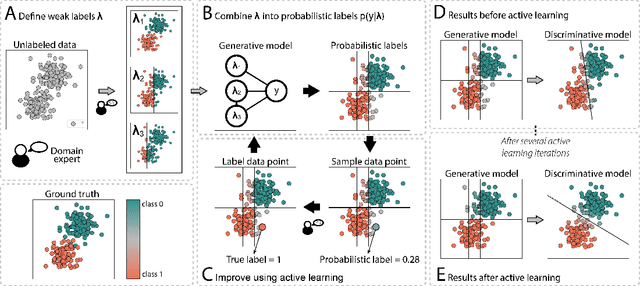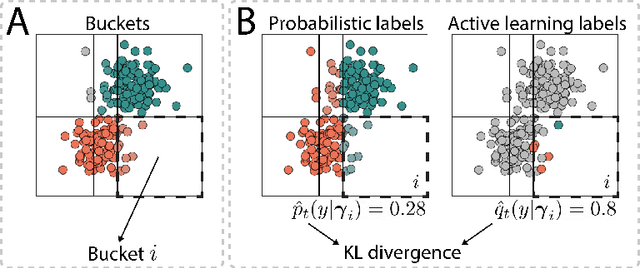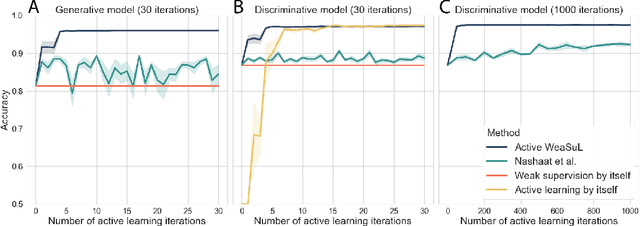Nanne Aben
Active WeaSuL: Improving Weak Supervision with Active Learning
Apr 30, 2021



Abstract:The availability of labelled data is one of the main limitations in machine learning. We can alleviate this using weak supervision: a framework that uses expert-defined rules $\boldsymbol{\lambda}$ to estimate probabilistic labels $p(y|\boldsymbol{\lambda})$ for the entire data set. These rules, however, are dependent on what experts know about the problem, and hence may be inaccurate or may fail to capture important parts of the problem-space. To mitigate this, we propose Active WeaSuL: an approach that incorporates active learning into weak supervision. In Active WeaSuL, experts do not only define rules, but they also iteratively provide the true label for a small set of points where the weak supervision model is most likely to be mistaken, which are then used to better estimate the probabilistic labels. In this way, the weak labels provide a warm start, which active learning then improves upon. We make two contributions: 1) a modification of the weak supervision loss function, such that the expert-labelled data inform and improve the combination of weak labels; and 2) the maxKL divergence sampling strategy, which determines for which data points expert labelling is most beneficial. Our experiments show that when the budget for labelling data is limited (e.g. $\leq 60$ data points), Active WeaSuL outperforms weak supervision, active learning, and competing strategies, with only a handful of labelled data points. This makes Active WeaSuL ideal for situations where obtaining labelled data is difficult.
 Add to Chrome
Add to Chrome Add to Firefox
Add to Firefox Add to Edge
Add to Edge